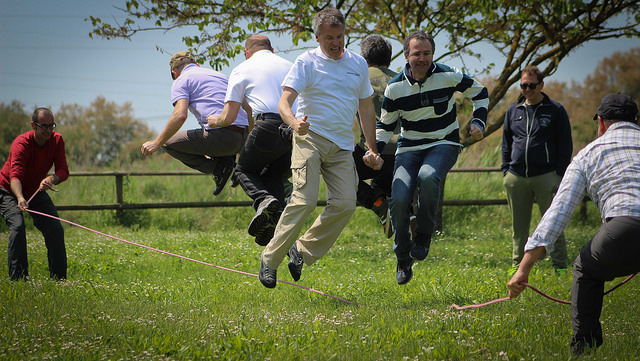
Are team building events great or awful?
Originally posted on The Horizons Tracker.
Most workplaces strive to be fun and welcoming, but trying to build bonds between your team can be perilous. A University of Pennsylvania study1 from a few years ago highlighted the perils of so called ‘forced fun’ at work. It suggested that games at work only deliver performance boosts if employees are already predisposed to enjoying those kind of games outside of work. If they’re not, the results can be disastrous.
It chimes with similar findings from a more recent study2 from researchers at the University of East Anglia. It finds that shared activities in the workplace can improve employee wellbeing, but it’s by no means guaranteed.
The team performed a review of around 1,400 papers on the topic to delve into how team activities influence employee wellbeing. It emerged that the most successful ones shared various traits. For instance, they usually involve everyone, even those who are reluctant to participate in shared activities. They also tend to run over a period of time and are not one-off activities.
Forced fun
As the study highlighted at the start of this post reminded us however, this notion of ‘forced fun’ can make many people’s skin crawl. Thankfully, the analysis reveals that such ‘team building’ activities don’t need to be big, complex events to deliver boosts to employee engagement levels.
“Good social relations between workers and between workers and management are among the most important factors for well-being at work, resilience and engagement. The research shows that, with the right intent, it can be quite straightforward to improve social relations at work,” the authors say.
“This research backs up our other evidence: people stay in, and go back to, jobs they like with people they like. We are recommending that organisations carry out activities that boost social relations at work, and evaluate their impact,” they continue.
Article source: Are team building events great or awful?
Header image source: TeamWork by Luigi Mengato is licenced by CC BY 2.0.
References:
- Mollick, E. R., & Rothbard, N. (2014). Mandatory fun: Consent, gamification and the impact of games at work. ↩
- Daniels, K., Watson, D., & Gedikli, C. (2017). Well-being and the social environment of work: A systematic review of intervention studies. International Journal of Environmental Research and Public Health, 14(8). ↩






